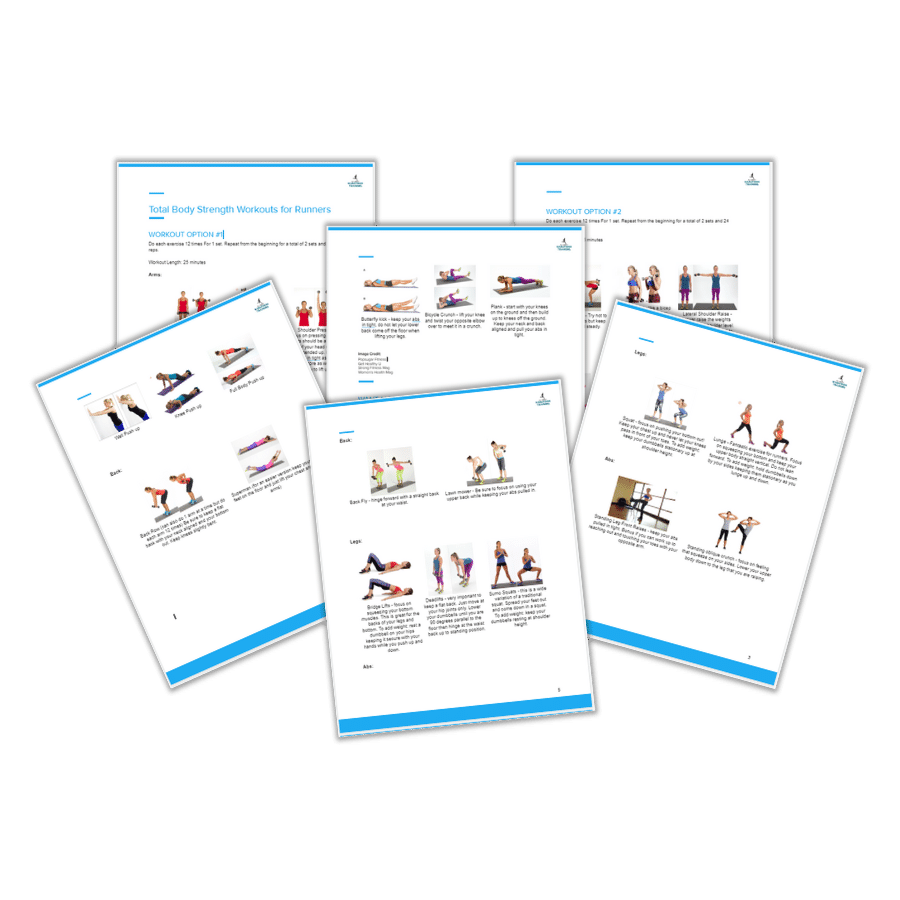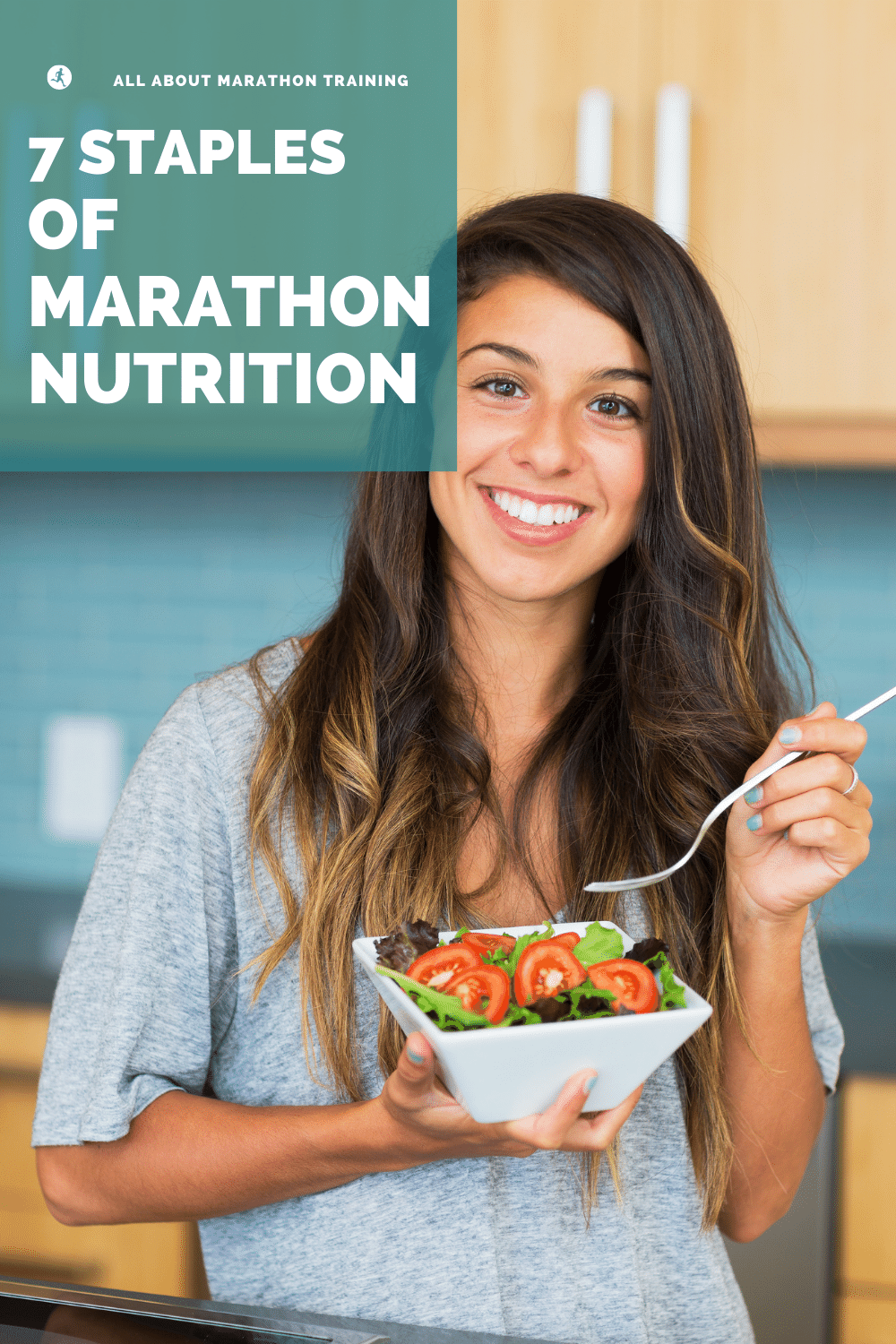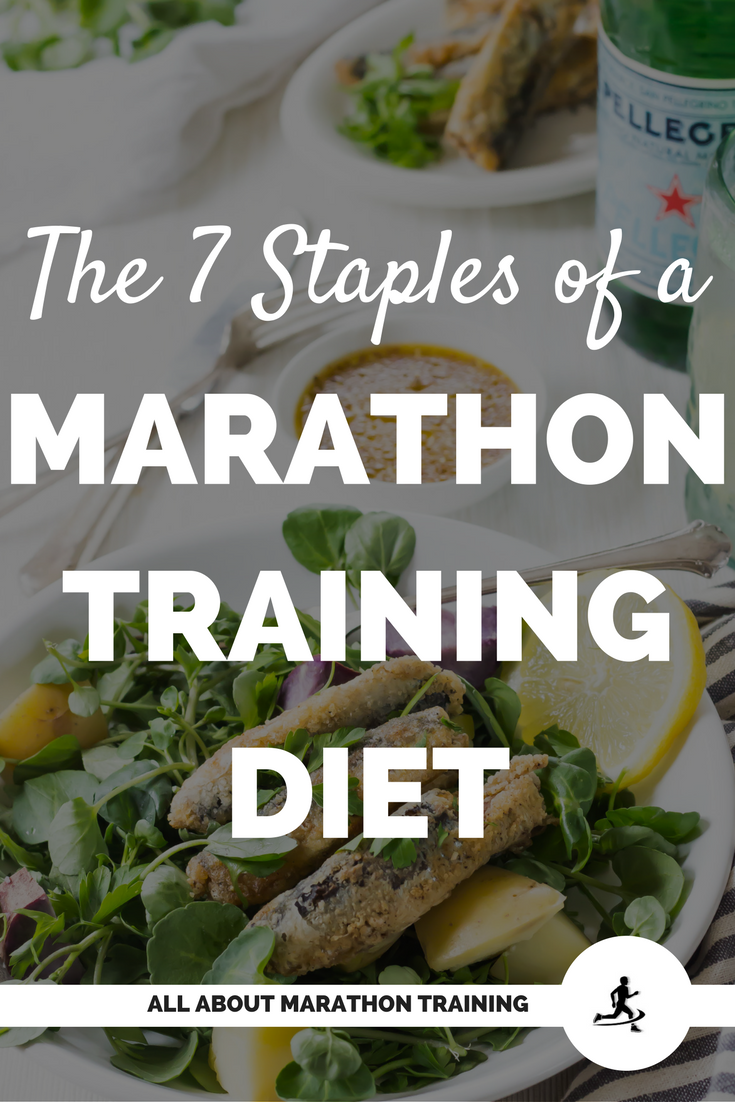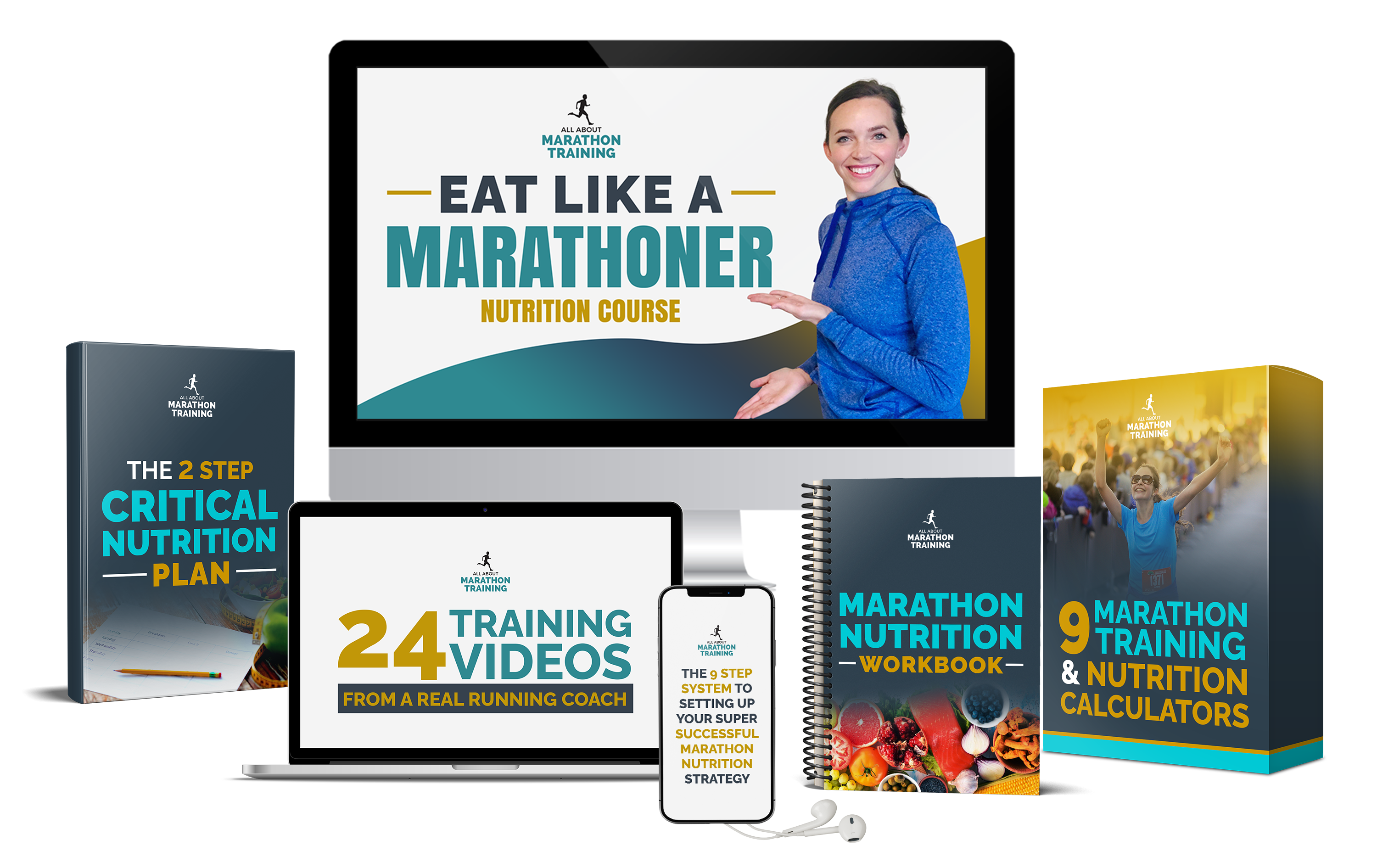Your Marathon Training Diet - the 7 Staples
It can be confusing to know what you should be eating in your marathon training diet when there is just so much advice and contradictory diets and research and evidence.
However, it all comes down to what your goals are.
For example, if you are wanting to lose weight, your diet will be different than if you are trying to reach your peak performance in the marathon.
No one diet will be perfect for everyone. Also, no one diet will be perfect for you at all phases of your life. As your goals, health, and exercise patterns change so should your diet. This is important to keep in mind!
So I want to talk to you about what your marathon training diet should look like if you are in training for a half or full marathon coming up!
There is so much to talk about concerning your marathon training diet when you are training which is why I put everything together in the EAT LIKE A MARATHONER Nutrition Course which will leave you very knowledgeable on the topic of eating while training for a marathon + creating a personal nutritional plan in the weeks before, during, and after your marathon.
I want to give you the framework though right here and now though!
The 7 Staples of a Marathon Training Diet:
1. Include lots of complex carbohydrates.
We talk about why we must eat carbohydrates in the EAT LIKE A MARATHONER Nutrition Course however it basically comes down to the fact that carbohydrates are what we can metabolize the fastest.
When we are running we are performing high intensity exercise and so therefore need a very steady stream of energy delivered to our muscles in order to be able to continue running for long periods of time.
Carbohydrates are the key to getting that energy fast!
If there is one staple of a marathon training diet it would be this! Carbs are not bad for you! You just need to choose the right kinds! (For example, see this page for tips on reducing your sugar intake!)
2. Eat fruits and vegetables at every meal.
It is a fact that we are not eating enough fruits and vegetables. We should be eating about 5-9 servings every day!
This can be difficult for a lot of people but we need to make the effort.
One of the simplest ways to make sure we are eating enough fruits and veggies is to eat one of each at every meal. So when you sit down for breakfast, lunch or dinner, include some sort of fruit and vegetable on your plate. If you eat 3 meals a day you will then get 6 servings of fruits and vegetables. Score.
3. Lots and lots of water.
As runners we lose a lot of water when we are out running, sweating, and burning through energy.
Dehydration is no joke. We need to make sure we are always hydrating. Figure out a way to keep yourself motivated to drink whether it's buying yourself a 32 oz water bottle that you refill twice a day or putting lemon wedges or strawberry slices in your water to make it more appealing.
4. A great energy drink that is comprised of at least 4-8% carbohydrates.
When you are training for a marathon and performing longer and longer runs you will need to bring some sort of carbohydrate drink or snack with you on runs over and hour in length.
The best form is through an energy drink that contains carbs and electrolytes.
Not all energy drinks though are created equal and there are some poor choices out there on the market.
Here is a rundown of some of the best out there (including the one Meb Keflezighi uses and swears by) and some to just say no to.
5. Includes protein as a recovery nutrient and not a base.
There is a huge hype over eating tons and tons of protein.
Sure it's incredibly beneficial and a key macro-nutrient however there is a limit to how much we need since we can eat too much!
As a long distance runner though you actually do not use protein (almost at all!) as fuel for your running. It does help in any muscle repairs that you might need after a long run but as far as being capable of running the marathon it's use is almost negligible.
Therefore think of it in terms of recovery food but not vital for eating before your long runs.
6. Eat healthy fats!
Fats is an essential macro-nutrient that you need to intake every day as part of your marathon training diet.
Healthy fats boost brain power and also help you to perform many bodily functions. It also will be the macro-nutrient that you will use for your energy during your marathon if you do run out of carbohydrates.
However you need to eat the good fats! That is fish, nuts, seeds, and olive oils!
7. Include healthy doses of Vitamin C every day but especially long run days!
Your immune system can take a bit of a hit after each long training run that you do. You might find yourself worn down, achy, runny nose or sore throat after a long run especially if this is your first marathon training cycle. Be sure to focus on active recovery on these days!
Try to help it out by taking Vitamin C before and after each long run. If you are getting in your fruits and vegetables each day (especially citrus fruits and potatoes that contain lots of carbs and vitamin C) you might be fine.
Otherwise take a supplement of some sort that contains the vitamin. (This is the Vitamin C that I use - it is the most unprocessed, highly soluble and has been found to increase absorption rate and maximize benefits. I find that when I feel a cold or sore throat coming a 1/4 tsp will nip it in the bud!)
These are some other supplements that I encourage other runners to take.
So there you have it. The framework that your marathon training diet should consist of.
If you find yourself lacking in certain areas figure out a way right now to make it a bit easier to eat better! Just one simple step versus many bigger steps will be incredibly effective in getting on the right track.
Some ideas to help you start implementing a better marathon training diet:
- Challenge yourself to drink 8 glasses of water each day for a month.
- Eat a fruit OR vegetable (to start with) at every meal for a week. Then add in a fruit AND vegetable at every meal for a month.
- Set a timer on your phone or add it onto your calendar to supplement with Vitamin C a couple days before and after a long run.
- Make your own trail mix with almonds, cashews, pumpkin seeds, raisins, craisins, and coconut for a healthy filling snack of healthy fats! Restock it every week so that you are ready with it!
- Make sure that your energy drink contains the right amount of carbohydrates, electrolytes, and is effective! (Remember to check out this page!)
- Get the EAT LIKE A MARATHONER Nutrition Course so that you figure out your exact macronutrient needs and learn why and how marathoners should eat. + Get meal ideas and more marathon training diet tips just like these!
The Ultimate Guide to eating and fueling for marathon training and racing success! + get access and develop your own personalized marathon nutrition plan to implement before your marathon with our 9 STEP Prep Plan!
Get access to the EAT LIKE A MARATHONER Nutrition Course here!
👋Sign up to receive the free printable strength exercises for runners: 👇
 |
As featured on:





New! Comments
Have your say about what you just read! Leave me a comment in the box below.